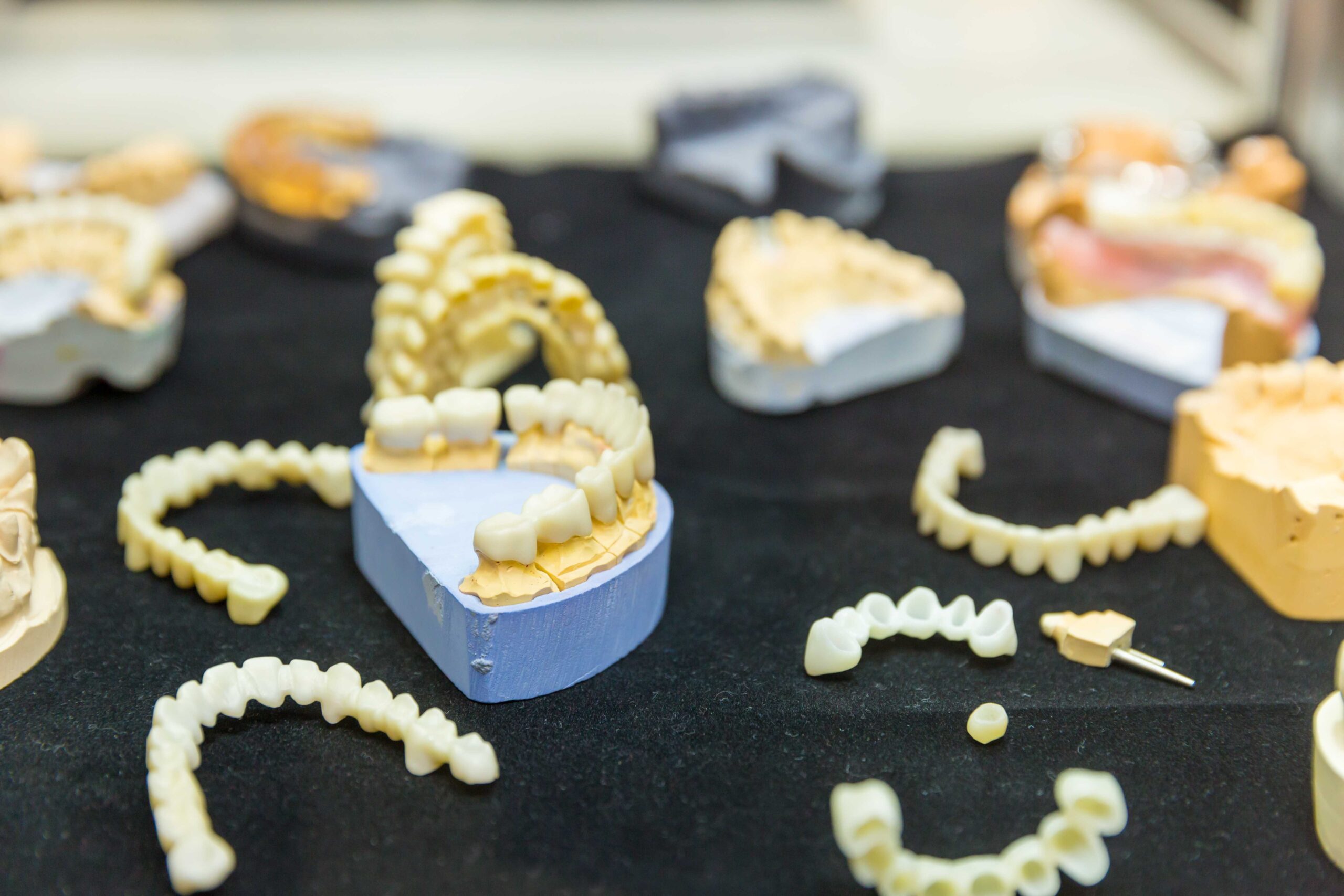Losing teeth isn’t just a cosmetic concern—it can impact your oral health, speech, and ability to chew comfortably. Thankfully, modern dentistry provides effective solutions: dental implants and dentures. In this in-depth guide, we’ll explore these options extensively, helping you make a well-informed decision based on your unique needs and preferences.
Missing teeth can lead to various complications, such as bone loss and changes in facial structure. Dental implants and dentures offer viable solutions to these challenges. By understanding the nuances of each option, you can confidently select the best choice for your oral health.
Dental Implants
Dental implants are a remarkable innovation that mimics the structure and function of natural teeth. Comprised of titanium posts surgically inserted into the jawbone, they provide a stable foundation for prosthetic teeth.
Benefits of Dental Implants
Longevity and Durability
With proper care, dental implants can last a lifetime.
Natural Appearance and Function
Implants blend seamlessly with your existing teeth, restoring both aesthetics and function.
Preservation of Jawbone Health
Implants stimulate the jawbone, preventing bone resorption that occurs with tooth loss.
Process of Getting Dental Implants
Initial Consultation and Treatment Planning
Your dentist evaluates your oral health, takes X-rays, and develops a personalized treatment plan.
Implant Placement Surgery: During a minor surgical procedure, the implants are inserted into the jawbone.
Osseointegration and Healing Process
Over a few months, the implants fuse with the jawbone in a process called osseointegration.
Placement of Prosthetic Tooth/Teeth
Once the implants are stable, custom-made crowns, bridges, or dentures are attached.
Candidacy for Dental Implants
Candidates for implants need sufficient jawbone density, good oral hygiene, and overall health. If necessary, bone grafting can be considered to enhance bone volume for successful implantation.
Dentures
Dentures, the traditional solution for missing teeth, are removable dental appliances. They come in two primary types: complete (full) dentures and partial dentures.
Benefits of Dentures
Affordability and Convenience
Dentures are generally more budget-friendly compared to dental implants.
Restoration of Basic Oral Function
Dentures facilitate eating, speaking, and smiling confidently.
Option for Those with Inadequate Jawbone
Dentures can be a suitable option for individuals with insufficient bone for implants.
Process of Getting Dentures
Initial Consultation and Oral Impressions
Your dentist takes impressions of your mouth to create custom-fitted dentures.
Custom Denture Fabrication
Skilled technicians craft dentures that fit your mouth’s contours and match your natural teeth.
Fitting and Adjustments
After fabrication, the dentures are adjusted to ensure a comfortable fit and proper function.
Comparing Dental Implants and Dentures
Aesthetic Considerations
Natural Appearance
Dental implants offer unparalleled aesthetics, closely resembling real teeth.
Facial Structure Preservation
Implants prevent the sunken-in look that can occur with dentures.
Functional Considerations
Chewing Efficiency
Dental implants provide superior chewing ability due to their stability.
Speech
Dental implants don’t interfere with speech as some dentures might.
Comfort and Convenience
Stability within the Mouth
Implants remain fixed, while dentures can shift during use.
Daily Maintenance and Care
Dentures must be removed for cleaning, while implants are cared for like natural teeth.
Long-Term Health Effects
Impact on Jawbone Health
Dental implants stimulate the jawbone, preventing bone loss, unlike dentures that don’t offer this benefit.
Adjacent Teeth Preservation
Implants don’t rely on neighboring teeth for support, as partial dentures often do.
Cost Comparison
Initial Investment
Dental implants generally require a higher upfront investment due to their complexity.
Long-Term Cost-Effectiveness
While dentures have a lower initial cost, dental implants’ longevity may make them more cost-effective over time.
Choosing the Right Option for You
Factors to Consider When Making a Decision:
Oral Health Condition
Your dentist will assess your oral health and bone density to determine which option is feasible.
Lifestyle and Daily Habits
Your dentist will assess your oral health and bone density to determine which option is feasible.
Oral Health Condition
Consider your dietary preferences, social interactions, and speech concerns.
Budget and Financial Considerations
Evaluate your budget constraints and insurance coverage.
Importance of Consulting with a Dentist
A skilled dentist’s guidance is essential in making the optimal choice. They’ll consider your unique situation and recommend the solution that aligns with your goals.
Frequently Asked Questions (FAQs)
Are dental implants painful to get?
Dental implant surgery is typically performed under local anesthesia, ensuring minimal discomfort. Most patients report mild soreness that can be managed with over-the-counter pain relievers.
How long does the implant process take?
The entire process can take several months, including the healing period. However, this time frame can vary based on individual healing rates and treatment complexity.
Can dentures affect my ability to eat and speak?
Initially, you might experience some adjustment challenges with dentures, including speaking and eating. However, with practice, most individuals adapt quickly.
Are dentures less expensive than dental implants?
Generally, dentures have a lower upfront cost than dental implants. However, considering long-term maintenance and potential replacements, implants’ longevity can make them more cost-effective in the long run.
Can I get dental implants if I have bone loss?
In cases of bone loss, bone grafting can often provide the necessary support for successful implant placement. Your dentist will assess whether this procedure is suitable for your situation.
Improve Your Oral Health With Hedgecock Dental
Hedgecock Dental is available for all of your family dentistry needs. Our dental office in Austin, TX provides general, sedation, restorative and cosmetic dentistry to patients of all ages.





